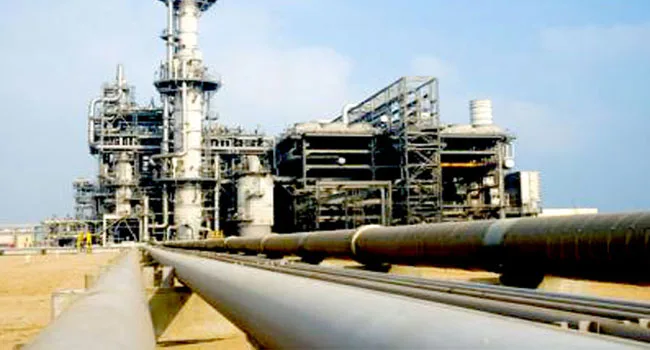Nigeria lost about N289.6bn crude oil revenue in November 2023 following a plunge in the country’s oil output last month, when compared to what it pumped in the preceding month of October.
An analysis of the country’s latest crude oil production figures, obtained from the Nigerian Upstream Petroleum Regulatory Commission in Abuja on Sunday, showed that Nigeria produced 41,867,775 million barrels of crude (excluding condensates) in October.
But this plunged to 37,508,971 barrels in November, representing a decline of 4,358,804 million barrels when matched against what the country produced in October.
The average price of Brent, the global benchmark for crude, in November 2023 was $82.94/barrel, according to Country Economy, an international statistical firm.
By losing 4,358,804 million barrels of crude in November, the value of oil that was lost by Nigeria in the month under review was about $361.52m.
A global rates firm, exchangerates.org, stated that the average exchange rate of the naira against the United States dollar in November was N801/$. This implies that Nigeria’s oil revenue in November crashed by about N289.6bn.
Meanwhile, further analysis of the NUPRC report showed that in January, February, March, April and May 2023, Nigeria’s crude oil outputs (excluding condensates) were 39,266,420 million barrels, 36,182,712 million barrels, 39,268,847 million barrels, 30,131,770 million barrels and 36,869,280 million barrels respectively.
For the months of June, July, August and September 2023, the country pumped 37,827,842 million barrels, 33,761,767 million barrels, 36,615,125 million barrels and 40,396,863 million barrels respectively.
But despite the crash in oil output, the Federal Government insisted that Nigeria would meet and surpass the 2024 crude oil budget benchmark of 1.7 million barrels per barrel.
The Minister of State for Petroleum Resources (Oil), Senator Heineken Lokpobiri, had insisted on Tuesday that the country would meet its oil production benchmark in the 2024 budget of 1.7mbpd.
Lokpobiri had also said the country has the capacity to increase crude oil production to two million barrels per day.
“The success of the upstream sector will determine the success of the midstream and the downstream sectors. And as a government, we are willing to sustain that engagement with the stakeholders so that in the year 2024 and beyond, we will together ensure that we produce not just the 1.7 million bpd that we need for our budget but ensure that we produce what is needed to meet the local demand,” the minister had stated.
The minister had also stated in a post on his X handle that Nigeria was committed to its membership of the Organisation of Petroleum Exporting Countries.
The PUNCH reported on Friday that the dispute over crude oil production quota between OPEC and a few of its members eventually made Angola to exit the global oil cartel on Thursday.
But Lokpobiri reaffirmed “Nigeria’s unwavering commitment to OPEC as we navigate the dynamic landscape of the global energy sector.”
He added, “Our collaboration within the organisation remains pivotal in fostering stability and sustainability in the oil market. We are resolute in our dedication to OPEC’s objectives while actively engaging with the organisation to address concerns that resonate not only within our nation’s borders but across the entire continent.
“Nigeria stands ready to contribute constructively to the ongoing dialogue, ensuring that the unique challenges and opportunities of our region are duly recognised and addressed.”
He maintained that as “the Minister of State for Petroleum Resources, I am committed to fostering a collaborative spirit within OPEC that goes beyond our national interests, recognising the collective responsibility to nurture a resilient energy landscape for the benefit of all member nations and the world at large.”
